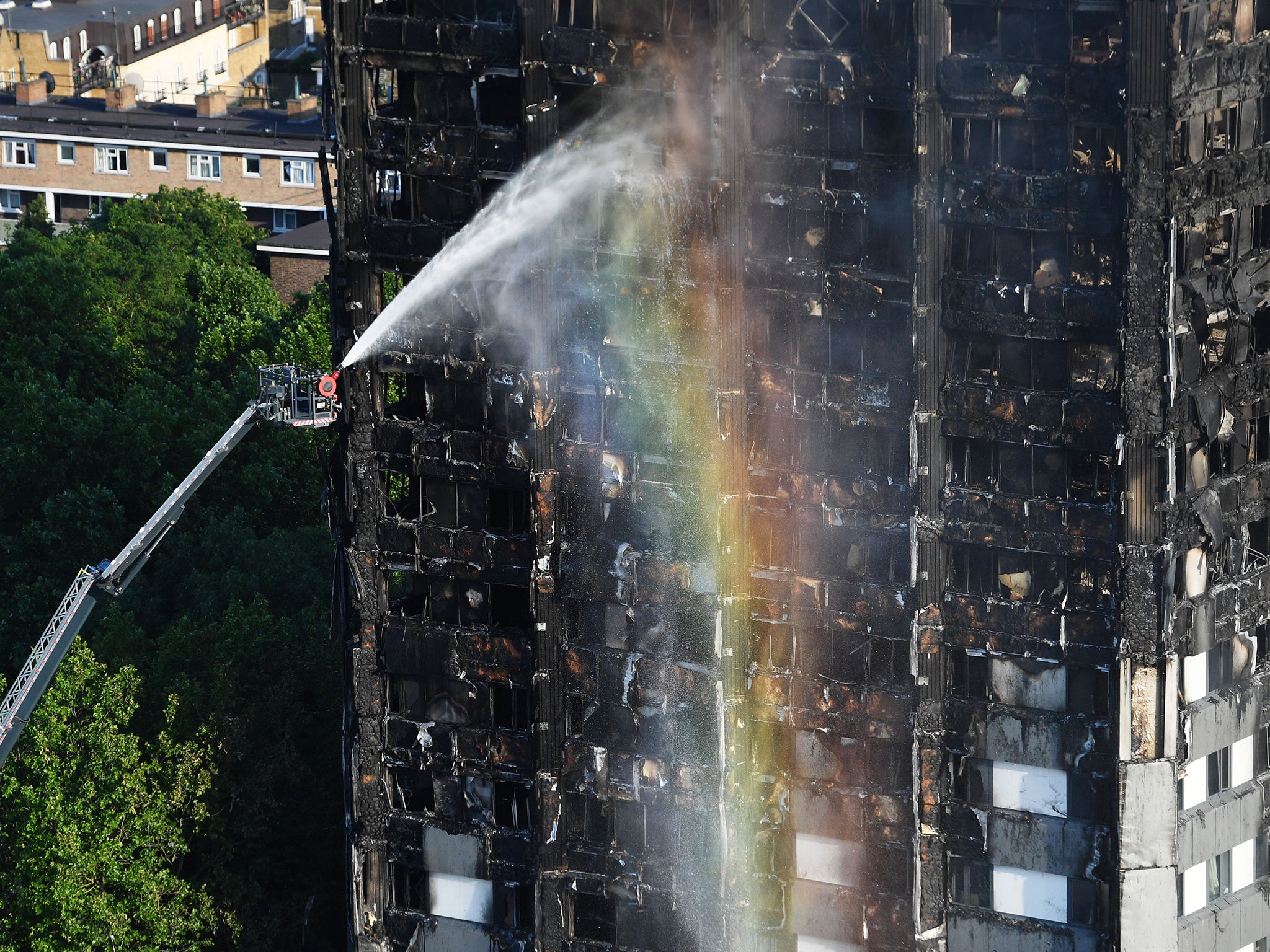Effectiveness of response to tower block fires a 'postcode lottery', firefighters say
The FBU’s general secretary has described recent research findings as ‘deeply concerning’ and ‘utterly unacceptable’

Your support helps us to tell the story
From reproductive rights to climate change to Big Tech, The Independent is on the ground when the story is developing. Whether it's investigating the financials of Elon Musk's pro-Trump PAC or producing our latest documentary, 'The A Word', which shines a light on the American women fighting for reproductive rights, we know how important it is to parse out the facts from the messaging.
At such a critical moment in US history, we need reporters on the ground. Your donation allows us to keep sending journalists to speak to both sides of the story.
The Independent is trusted by Americans across the entire political spectrum. And unlike many other quality news outlets, we choose not to lock Americans out of our reporting and analysis with paywalls. We believe quality journalism should be available to everyone, paid for by those who can afford it.
Your support makes all the difference.The different standards in how fire services can respond to life threatening tower block fires is a “postcode lottery“, the Fire Brigades Union (FBU) has said.
There are 125 aerial ladder/platform vehicles, which have long ladders or platforms to reach fires in high buildings, in England – but only 33 of them are available round-the-clock because there is a lack of fire crews, new FBU research states.
Location and resources are key to how firefighters can respond to an emergency and the pre-determined attendance (PDA) plan which can be triggered. This relates to the numbers of fire engines that should automatically be sent.
Kent, Humberside and Nottinghamshire have just three fire engines and no aerial platforms – while Hampshire has a PDA of eight fire engines and an aerial vehicle.
The FBU also states that the size of a fire crew can also vary between four or five firefighters per fire engine.
FBU general secretary and former firefighter Matt Wrack described these findings as “extremely concerning” in the light of the Grenfell Tower fire, and branded this situation as “utterly unacceptable”.
He said: “We find it staggering that nothing has been done to address this grossly unjust postcode lottery of resources, and the fact that governments in all parts of the UK appear not to have even considered it is a disgrace.
“They now need to urgently instruct fire services to improve their fire and rescue planning to ensure a full and professional response to such incidents all over the UK.
“Citizens everywhere need to feel safe and confident that those in authority are taking their safety seriously. Anything less is, frankly, obscene.”
In the aftermath of the Grenfell Tower tragedy, the FBU had hoped that an urgent review of greatly differing standards and approaches adopted by various fire and rescue services across the country would have been set up.
Mr Wrack, in a letter written to the Prime Minster today, said: “This appears not to have been done, which causes us concern and alarm.”
PA
Join our commenting forum
Join thought-provoking conversations, follow other Independent readers and see their replies
Comments